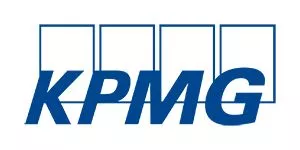- in European Union
- in European Union
- in European Union
- with readers working within the Metals & Mining industries
- within Insurance topic(s)
On 5 November 2024, the 27 EU Member States reached unanimous political agreement on the VAT in the Digital Age ("ViDA") proposal. While there are still some formalities to be completed before the proposal is fully adopted into EU law, this agreement will introduce major changes to how VAT operates across the EU.
ViDA includes three pillars:
- E-invoicing and Digital Reporting
- Platform Economy
- Single VAT registration summarized below.
E-Invoicing and Digital Reporting
Within 20 days of formal adoption of ViDA (likely early 2025)
Member States will no longer require a derogation from EU Council
to make issuing e-invoices mandatory for domestic transactions.
Member States may also stipulate that a customer is obliged to
accept e-invoices.
From 1 July 2030:
- Supplier must issue an e-invoice for B2B and B2G cross-border supplies in the EU within 10 days of the date of supply (or date of prepayment, if earlier) and digitally report certain transaction data from the e-invoice at the same time as issuing the e-invoice.
- Customer must digitally report intra-Community acquisitions of goods and purchases of reverse charge services within 5 days of the date the e-invoice for those acquisition/purchase being issued or being required to be issued (Member States might derogate in some cases).
- E-invoicing and digital reporting for domestic supplies are optional for Member States but, where introduced, must conform to the EU standard by 1 July 2030.
- Summary invoices to be allowed for supplies occurring in the same calendar month under certain conditions, to be issued within 10 days of calendar month end. Potential exclusion for "fraud sensitive sectors".
The transition to e-invoicing and digital reporting requires businesses to review and update their current invoicing and VAT reporting procedures. While 1 July 2030 is some time away, businesses with multinational operations must monitor the e-invoicing and digital reporting obligations around the EU and further afield as many of these will take effect before that date
Platform Economy
From 1 July 2028 (with Member States having option to delay to 1 January 2030 for some aspects):
- Platform operator is considered as a deemed supplier (i.e. liable to account for VAT) when facilitating supplies of passenger transport by road and short-term accommodation rental (not more than 30 nights). However, VAT obligation removed from platform operator where underlying supplier provides platform operator with its VAT number in Member State where VAT is due and confirmation that it will charge any VAT due on those supplies.
- Member States can opt-out of making the platform a deemed supplier where the underlying supplier is a small or medium enterprise (SME) for VAT purposes, subject to certain conditions.
- Place of supply of a platform's "facilitation service" to non-business (B2C) customers will be where the underlying service takes place.
- Platforms facilitating supplies of goods obliged to inform owners of those goods of any EU cross-border movements of goods (e.g. between different warehouses).
- Import One Stop Shop (IOSS) is optional for online platforms and vendors and €150 maximum consignment value threshold for use of IOSS remains.
The suppliers of passenger transport and short-term accommodation services through the platforms as well as the platforms themselves need to assess the impact on their prices and revenue from the platform charging VAT on those supplies.
While Member States may limit or delay the deemed supplier rule and reduce platforms' obligations in certain jurisdictions, it also has the potential to create additional complexity, as different rules will apply in different Member States. Platforms will also need to adopt procedures to confirm the underlying sellers' VAT status.
Single VAT Registration
From 1 July 2028:
- Existing One Stop Shop ("OSS") regime for certain B2C supplies of goods and services will be extended to other B2C supplies, including supplies of electricity and natural gas (effective from 1 January 2027), supply and install contracts, and certain domestic supplies of goods and services.
- New OSS for businesses to report own movements of goods between EU Member States where business is entitled to full VAT recovery in respect of those goods. Permissible for "capital goods" where the owner has a right to full VAT recovery but might l later claw it back if capital good used for exempt, private or free of charge supply. Current VAT call-off stock simplification (introduced as part of the Quick Fixes in January 2020) will be abolished as duplicating new OSS.
- VAT reverse charge mechanism for B2B transactions will be extended. Member States will be obliged to allow the reverse charge if a non-established supplier is not VAT registered in the country where the VAT is due and B2B customer is. If the supplier is not established and B2B customer is not VAT registered in the Member State where the VAT is due, Member States will have the option to require the customer to operate reverse charge VAT on that supply.
The businesses have to consider whether new simplifications can assist in recovering maximum input VAT possible or whether it is preferable to maintain existing foreign VAT registrations (where possible).
The content of this article is intended to provide a general guide to the subject matter. Specialist advice should be sought about your specific circumstances.
[View Source]

